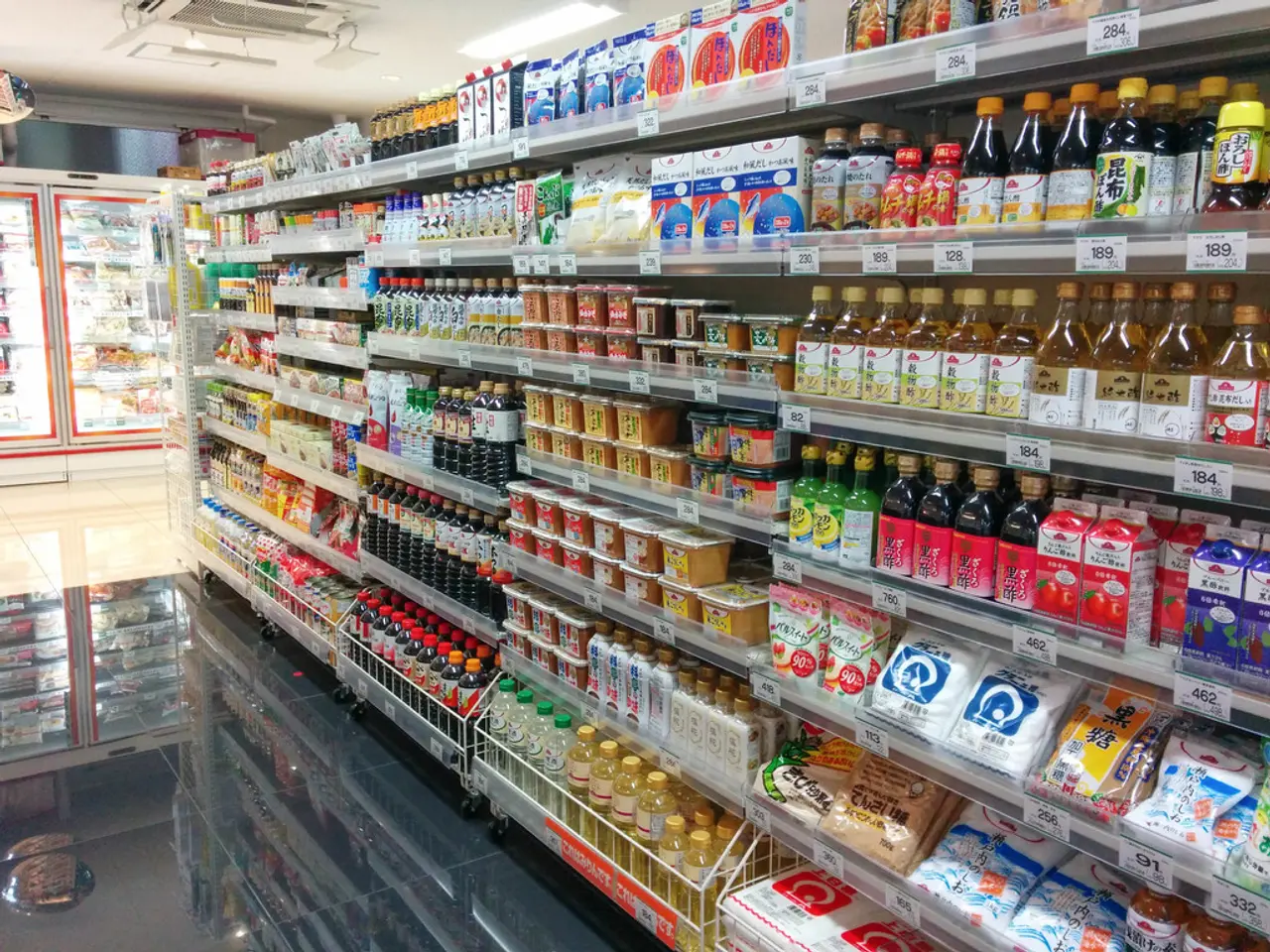Markets worldwide falter due to Trump imposing tariffs on major US trade allies
President Donald Trump's latest round of reciprocal tariffs, affecting multiple countries including Canada, India, Brazil, and others, has sent shockwaves through the global trade landscape. The new tariffs, ranging from 10% to as high as 50%, are aimed at addressing large U.S. trade deficits and protecting American workers, farmers, and manufacturers.
The potential effects of these tariffs are far-reaching. Increased costs for imports from these countries could lead to higher prices for U.S. consumers and businesses, contributing to inflation and potentially slowing economic growth in the U.S. Some economies, such as Brazil, may face acute challenges due to the high tariffs, reflecting its significant trade surplus with the U.S.
Canada, for instance, faces a 35% tariff that strains trade under the USMCA framework and affects sectors like groceries and electronics. India, subject to a 25% tariff, may hinder its export growth to the U.S., potentially provoking diplomatic responses. Brazil, with tariffs reaching as high as 50%, faces the highest among major partners, impacting agricultural and industrial goods. Taiwan and Switzerland are among nearly 70 countries subject to varied tariffs, disrupting their export sectors to the U.S.
Countries affected by these tariffs may respond through various measures, including negotiations for revised trade agreements or security partnerships, attempts to lower tariff rates bilaterally, or retaliatory tariffs on U.S. exports. Some countries, like Kosovo and Malaysia, have already engaged in talks or offered terms, but others have not negotiated, prompting the tariff adjustments.
The new tariffs risk escalating trade tensions, dampening international economic cooperation, and increasing prices both in the U.S. and in affected trading partner countries. The Trump administration frames this approach as necessary to protect U.S. economic and national security interests amid perceived unfair trade practices.
In response, European and Asian stock markets have seen declines, with the STOXX 600 hitting a four-week low and Germany's DAX seeing major losses. The European Union, initially expecting a negotiated 15% tariff cap to take effect on August 1, was surprised to see the start date postponed to August 7, and is seeking clarification and potential relief.
Global leaders must navigate a narrowing diplomatic lane - cooperate or confront, as Trump leans into protectionist policies ahead of the 2026 midterms. The long-term implications of these tariffs on the global economy remain uncertain, but one thing is clear: the world of trade is poised for significant change.
- The unexpected increase in tariffs on various goods from multiple countries, such as Canada, India, Brazil, and others, could significantly impact the finance sector in the United States, as higher prices for imports may lead to inflation and potentially slow economic growth.
- The implementation of high tariffs on some countries, like Brazil with tariffs reaching as high as 50%, could have profound effects on U.S. business, as it may disrupt export sectors from countries like Taiwan and Switzerland, affecting their general-news landscapes.




